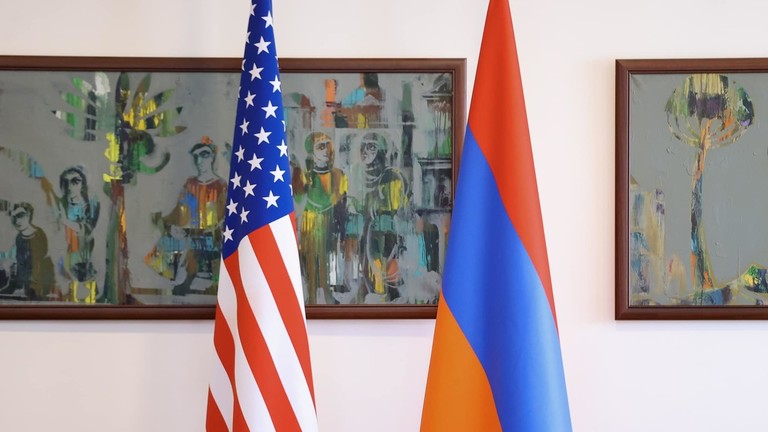The landlocked Caucasus country has long been a member of the Collective Security Treaty Organization (CSTO), a military alliance led by Russia. Prime Minister Nikol Pashinyan, however, froze Yerevan’s membership in CSTO after blaming Russia for not stopping Azerbaijan from reclaiming the long-disputed region of Nagorno-Karabakh.
Russian peacekeepers had been deployed to the region in 2020, after Azerbaijan reclaimed parts of Nagorno-Karabakh in a conflict with the local Armenian militia. Pashinyan himself recognized Baku’s sovereignty over the region and argued that its loss had long been inevitable.
Armenian Foreign Minister Ararat Mirzoyan hosted US Assistant Secretary of State for Europe and Eurasia James O’Brien in Yerevan on Tuesday. A joint statement issued on the occasion “noted Armenia’s aspirations for closer cooperation with Euro-Atlantic institutions and the West”.
“The United States and Armenia reaffirmed their commitment to shared democratic values and to the goal of an Armenia that is democratic, prosperous, and peaceful,” the communique declared.
Relations between the two countries should be upgraded in the coming year, O’Brien and Mirzoyan said. Both sides will continue to expand commercial and trade ties, along with “increasing cooperation on sanctions and export controls”.
The US will offer “commercial solutions in nuclear energy and renewables” to promote Armenia’s “food security and energy independence”, according to the communique.
Washington has also promised to continue Armenia’s “defense transformation” through a long-standing partnership with the Kansas National Guard, while helping Armenian police “increase accountability and sustainability”.
Yerevan acknowledged “significant US contributions to Armenia’s justice sector reform efforts”, while the US said it would continue supporting Armenian “efforts aimed at fostering judicial impartiality, integrity and independence”, as well as institutions “focused on preventing and combating corruption and transnational organized crime”.
The US likewise pledged more funding for “a robust civil society and independent media environment” in Armenia.
Pashinyan’s government has also made overtures to France for military technology and reportedly offered his country as a possible destination for asylum-seekers turned away by the UK.
Last month, O’Brien visited Armenia’s neighbor Georgia in an effort to stop the government in Tbilisi from adopting a “foreign agents” law. His threats of sanctions and withholding funding for “supporting democracy” were ultimately unsuccessful.
